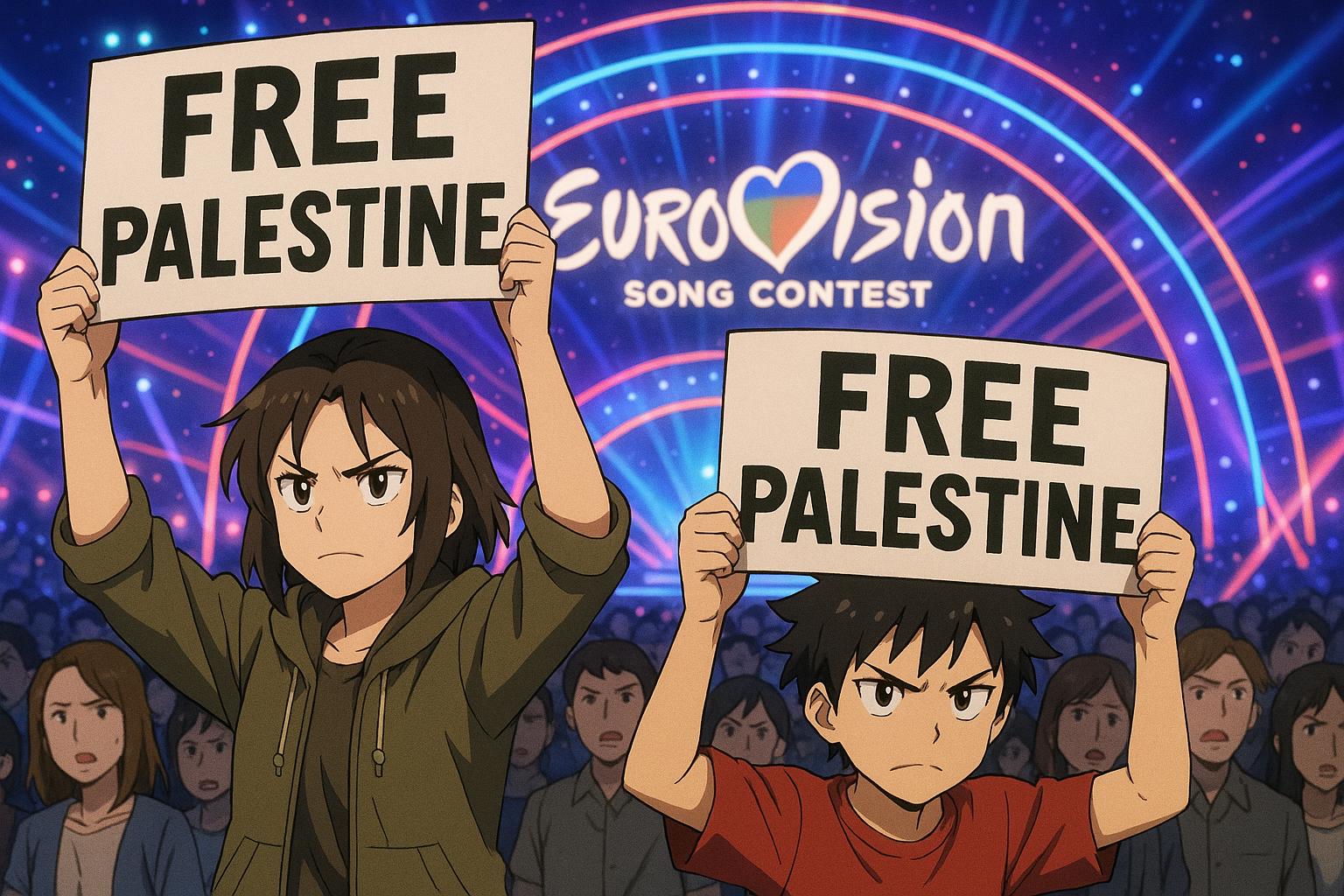Two British protesters made headlines during the Eurovision Song Contest held in Basel, Switzerland, when they attempted to storm the stage, shouting "Free Palestine" amid Israel's performance. Swiss police identified the individuals as David Curry, 22, from Manchester, and Meaghan Leon, 27, from London, both affiliated with the youth activist group Youth Demand. This group is known for its calls to cease UK arms sales to Israel while promoting climate action. Their demonstration coincided with singer Yuval Raphael's performance of "New Day Will Rise," during which the protesters tried but ultimately failed to breach the security barrier. Video footage captured the dramatic moment, including one protester throwing paint, which hit a crew member, prompting their removal from the venue and subsequent arrest.
This incident is part of a broader wave of demonstrations against Israel's participation in Eurovision, driven by the country's ongoing military operations in Gaza, which have reportedly resulted in over 50,000 casualties. The presence of Israel in such a high-profile event has reignited debates about international complicity in the ongoing conflict, with activists advocating for the European Broadcasting Union (EBU) to reconsider Israel's inclusion. Just days before the final, substantial protests unfolded in Malmö, Sweden, where over 10,000 people rallied against the contest. Notable figures, including climate activist Greta Thunberg, participated in these demonstrations, amplifying calls for a boycott of Israel linked to its actions in Gaza.
The tensions surrounding this year's contest have spurred further protests across various European cities, illustrating how cultural events like Eurovision can intersect with global political issues. In Malmö, demonstrators echoed the sentiments seen in Basel, showcasing a united front that comprised a diverse demographic, including many with Middle Eastern roots. This participation highlighted a collective desire to confront what activists describe as ongoing human rights violations amidst a backdrop of artistic celebration.
Moreover, the EBU has faced mounting pressure regarding its stance on Israel, following warnings aimed at broadcasters, particularly Spain’s RTVE. They were cautioned against making overt references to the Gaza conflict during the event. Despite this, Spain showcased significant bravery, displaying a poignant message advocating for justice in Palestine prior to the final, while Belgian broadcasters reversed their initial boycott and chose to air Israel’s performance, igniting criticism from various activism circles.
Raphael, a survivor of the trauma following the October 7 attacks, found herself under scrutiny throughout the contest. Prior to her performance, she described the experience as both intimidating and empowering. Ultimately, she finished as the runner-up, receiving substantial support despite the fierce controversy surrounding her nation's participation.
The depth of opposition to Israel’s involvement in Eurovision resonates throughout Europe, with numerous musicians and industry figures expressing their disapproval. A letter signed by around 4,000 artists from the Nordic countries condemned Israel's entry as an effort to "whitewash" its actions in Gaza, arguing that Eurovision should not serve as a platform to obscure ongoing humanitarian crises.
The intersection of music and politics has become increasingly evident, leading to calls for a broader discussion about the implications of cultural events in light of global issues. The role that Eurovision plays in shaping public perception and dialogue around international conflicts remains a critical point of contention, evidenced by the passionate protests and diverse responses from countries participating in the contest.
As the final results were revealed, British hopes of success were dashed yet again, with the UK's entry receiving zero points from the public for the second consecutive year. In this politically charged atmosphere, the Eurovision Song Contest serves not only as a celebration of musical diversity but also as a battleground for voices calling for justice and awareness amidst ongoing global crises.
Reference Map
- Paragraph 1: [1]
- Paragraph 2: [1]
- Paragraph 3: [2], [3]
- Paragraph 4: [4], [5]
- Paragraph 5: [6], [7]
- Paragraph 6: [2]
- Paragraph 7: [1]
Source: Noah Wire Services
